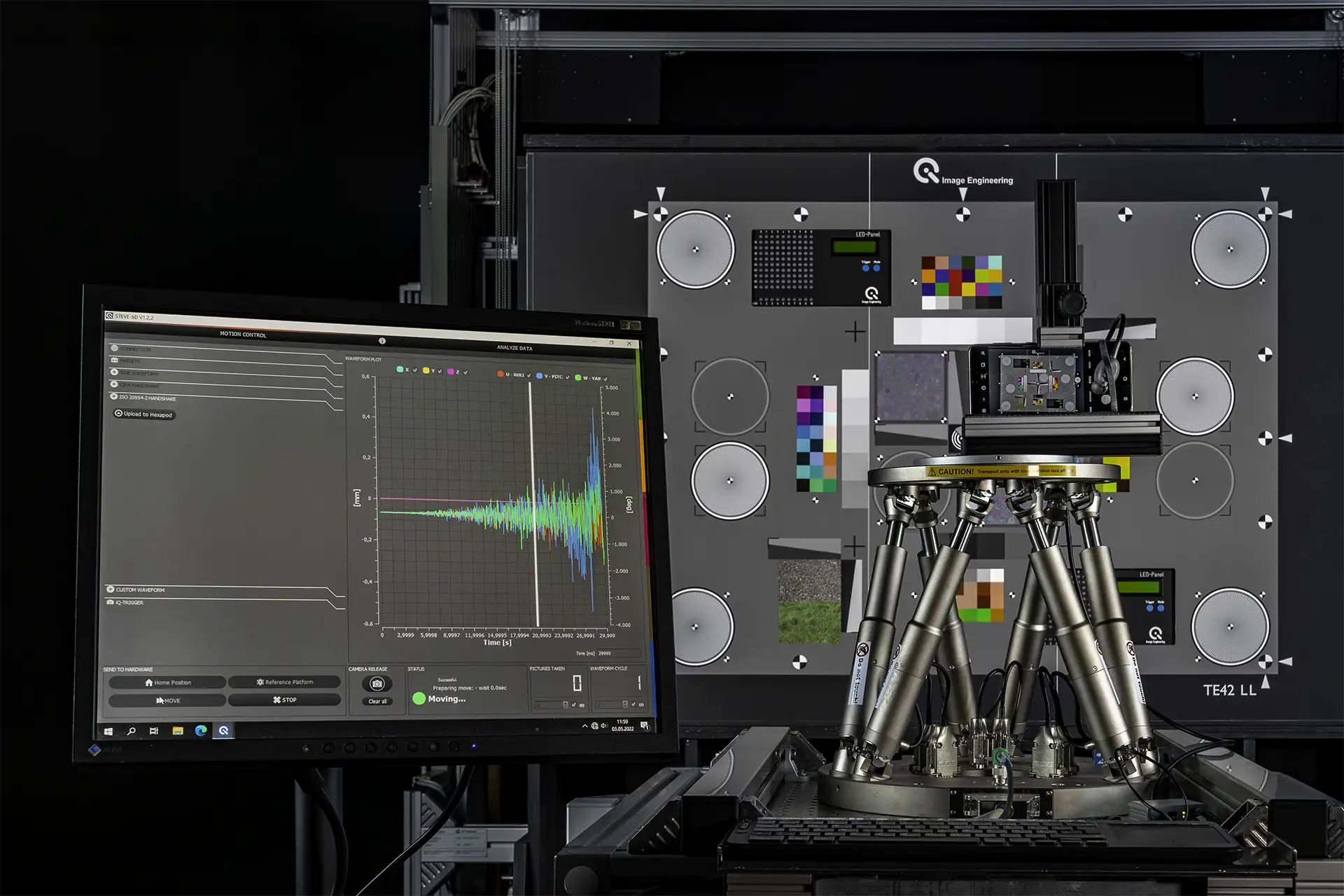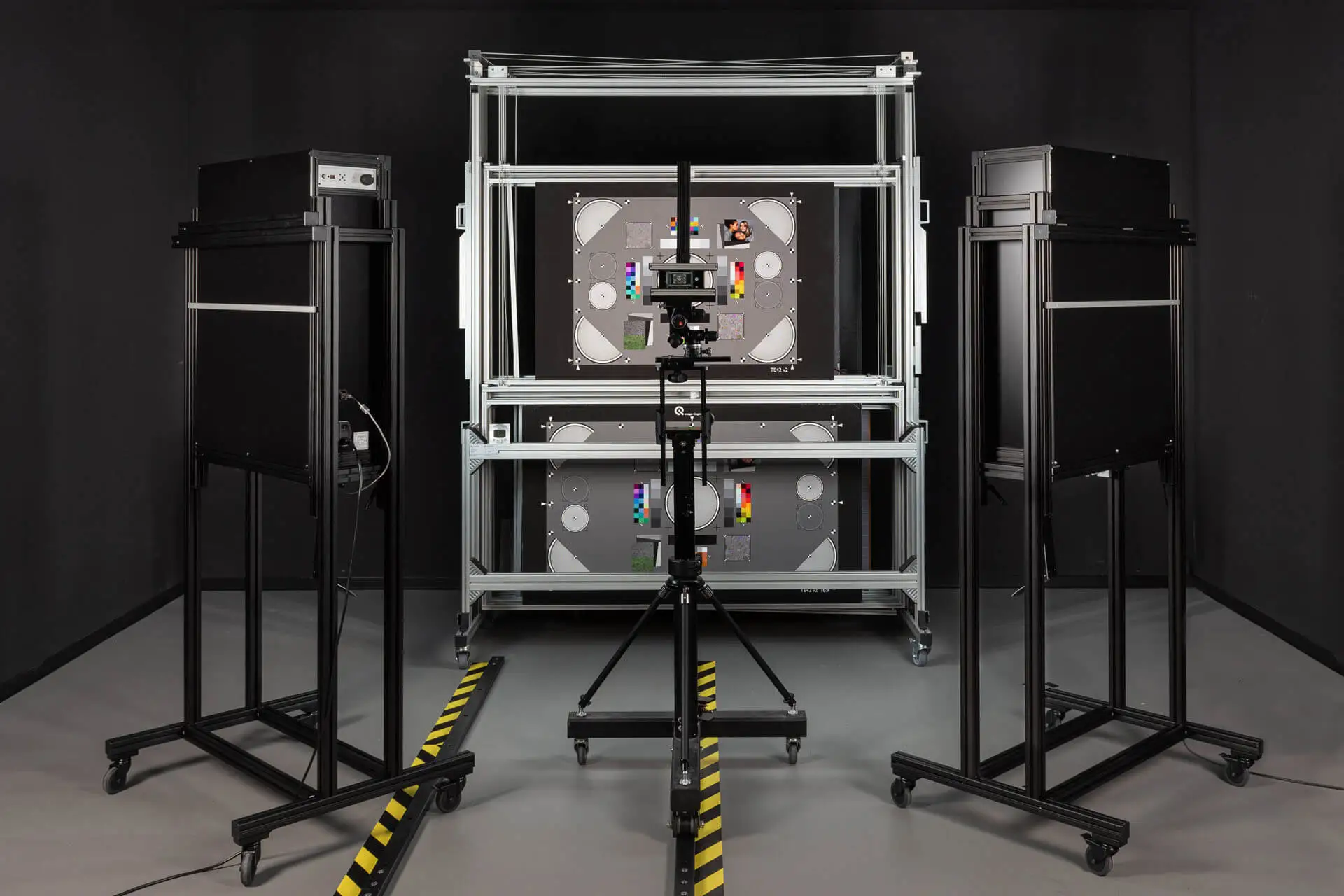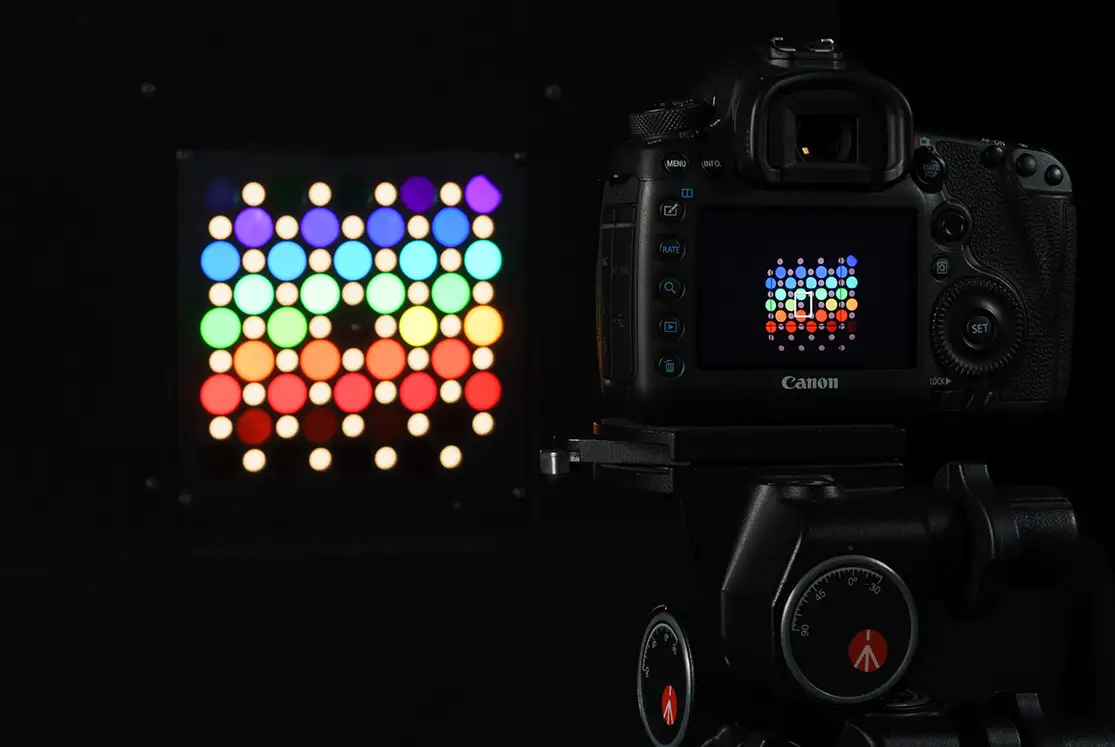The Test Lab
Welcome to the Image Engineering Image Quality (iQ) Test Lab. For over twenty years, we have provided objective camera tests to companies looking to improve the image quality performance of their digital cameras. Today, the test lab has grown into one of the world's largest independent camera test labs as we expand our testing capabilities to cover a wider variety of industries relying on camera systems, such as automotive and mobile phones.
Objective
Most camera users and manufacturers want to know if the camera they use or design produces a high-quality image. However, opinions differ on which characteristics make one image better than another; a viewer's style, preferences, and expectations affect our judgments. In contrast, our iQ-Lab performs objective assessments. Objective testing means that lab results are not influenced by the tester's opinion of the camera and its features.
Image sharpness is a case in point. Sharpness evaluations can depend on the viewer and also on the in-camera processing. In the lab, we use the TE42 multipurpose test chart series and our iQ-Analyzer-X evaluation software to measure resolution and gather objective results contributing to image sharpness. Testers follow a set method, capturing the images of the test chart with the camera on a tripod at a specific distance and under a particular light intensity.

Mobile camera testing scene
Independent

Testing scene
Apart from objective measurements, IE is also an independent test lab. Being independent allows us to help ensure the test results are trustworthy, valid, and robust.
Even before a camera is launched, one can often find some descriptions and evaluations on a website, if only on the manufacturer's website. Naturally, the manufacturer aims to sell their camera, and the information about the new model is intended as part of the marketing campaign. By comparison, an independent assessment offers impartiality. This lack of bias is why we can trust independent labs and testers.
Standard-driven
The assessments performed in the IE test lab are carried out per standard protocols that comply with the relevant international standards. For example, ISO, the international organization for standardization, has published over 22,000 standards since its foundation in 1946. Several are related to procedures for testing aspects of digital image quality.
"Standards…. give world-class specifications for products, services and systems, to ensure quality, safety and efficiency."
as the ISO website puts it.

Spectral sensitivity testing
Many of our engineers are members of the standard working groups (e.g., ISO, IEEE, VCX, EMVA, etc.) tasked with creating and updating the various standards, thus giving us first-hand knowledge of the test methods. Using standardized test methods ensures that test results can be compared with those produced by any other lab using these same international methods. It also means that the procedure used is transparent, and anyone can find out how our results have been obtained. And, of course, the charts and software we use are also for sale to any customers who wish to test their cameras for themselves.
Innovation
The iQ-Lab is constantly innovating and expanding as we look to find solutions to improve further the reliability and accuracy of our camera tests. We work closely with the R&D team, and every image quality testing device we eventually make available for purchase is rigorously tested in our lab to ensure it will be effective in the market. Even as we continue to expand, we have always maintained our foundation of providing objective, independent, and standard-driven assessments.
How to get started
Our camera tests include all of the vital image quality performance indicators, such as camera resolution, texture loss, color accuracy, dynamic range, noise, lens distortion, shading, chromatic aberration, etc.
A few of our most popular tests include our smartphone camera tests based on the VCX mobile standard, Webcam testing based on the VCX webcam standard, and automotive camera validation testing. We also perform other advanced tests and camera calibrations, including geometric calibration, color calibration, luminance calibration, radiometric calibration, spectral sensitivity measurements, and contrast transfer accuracy measurements, among many others.
Above, you will find direct links to our various test services. Our engineers are more than happy to assist you in choosing the proper test for your measurement specifications. If you do not see a test that matches your requirements, we can discuss the possibility of a custom test. Please get in touch with our test department directly for questions and inquiries.

